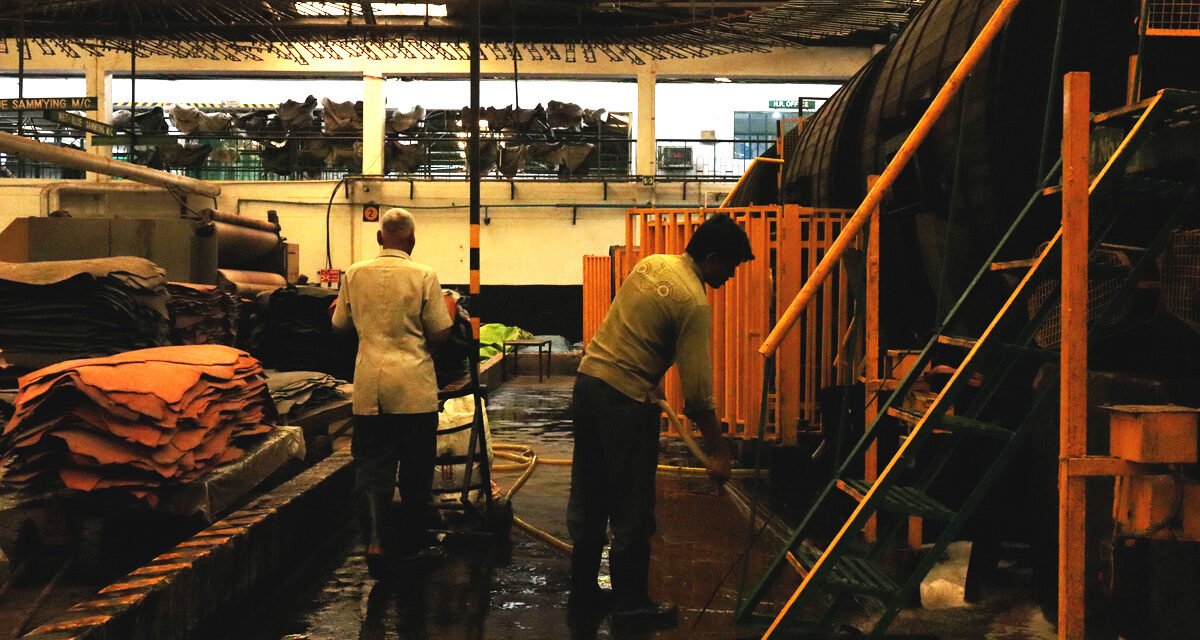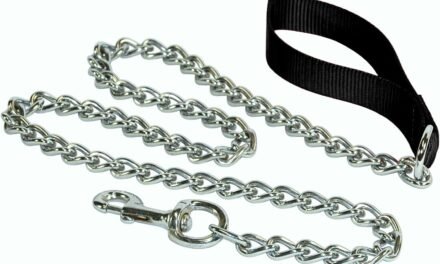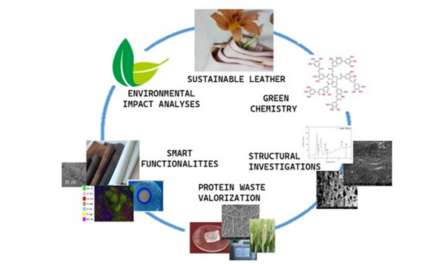The government ensures environmental compliance in Panapakkam’s leather industry through a combination of regulatory frameworks, technological initiatives, and collaborative efforts:
1. Regulatory Framework:
- Tamil Nadu Pollution Control Board (TNPCB): The TNPCB enforces environmental standards for industries, including leather manufacturing, by issuing guidelines and monitoring compliance to control pollution levels.
- Environmental Regulations: Industries must adhere to regulations concerning effluent treatment, waste management, and emissions to minimize environmental impact.
2. Common Effluent Treatment Plants (CETPs):
- Collective Effluent Management: To assist small and medium-sized tanneries in managing effluents, the government has established CETPs, which treat wastewater from multiple units, ensuring compliance with environmental standards.
- Zero Liquid Discharge (ZLD): Some CETPs implement ZLD systems, recycling treated water back into industrial processes and preventing liquid waste discharge into the environment.
3. Sustainable Technology and Environmental Promotion (STEP):
- Under the Indian Footwear and Leather Development Programme (IFLDP): The STEP sub-scheme promotes the adoption of sustainable technologies in the leather sector, focusing on reducing pollution and enhancing environmental performance.
4. Monitoring and Enforcement:
- Regular Inspections: The TNPCB conducts inspections and monitors effluent discharge, air quality, and waste management practices to ensure compliance with environmental norms.
- Penalties for Non-Compliance: Industries failing to meet environmental standards may face fines, closure orders, or other legal actions to enforce compliance.
5. Capacity Building and Training:
- Technical Assistance: Institutions like the Central Leather Research Institute (CLRI) provide technical support and training to industries, helping them adopt cleaner technologies and comply with environmental regulations.
- Awareness Programs: The government organizes workshops and seminars to educate industry stakeholders about environmental regulations and sustainable practices.
6. Collaboration with Industry Associations:
- Industry Partnerships: The government collaborates with industry bodies to develop and implement best practices for environmental management in the leather sector.
- Voluntary Compliance Initiatives: Encourages industries to participate in voluntary programs aimed at exceeding basic compliance and achieving higher environmental standards.
Through these measures, the government strives to mitigate the environmental impact of Panapakkam’s leather industry, promoting sustainable industrial growth while protecting natural resources.
Hashtags
#PanapakkamLeatherCompliance #EnvironmentalRegulationsTN #SustainableLeatherIndustry #TamilNaduPollutionControl #GreenLeatherManufacturing #PanapakkamEcoStandards #LeatherIndustryCompliance #EnvironmentalProtectionTN #SustainableManufacturing #LeatherSectorRegulations







